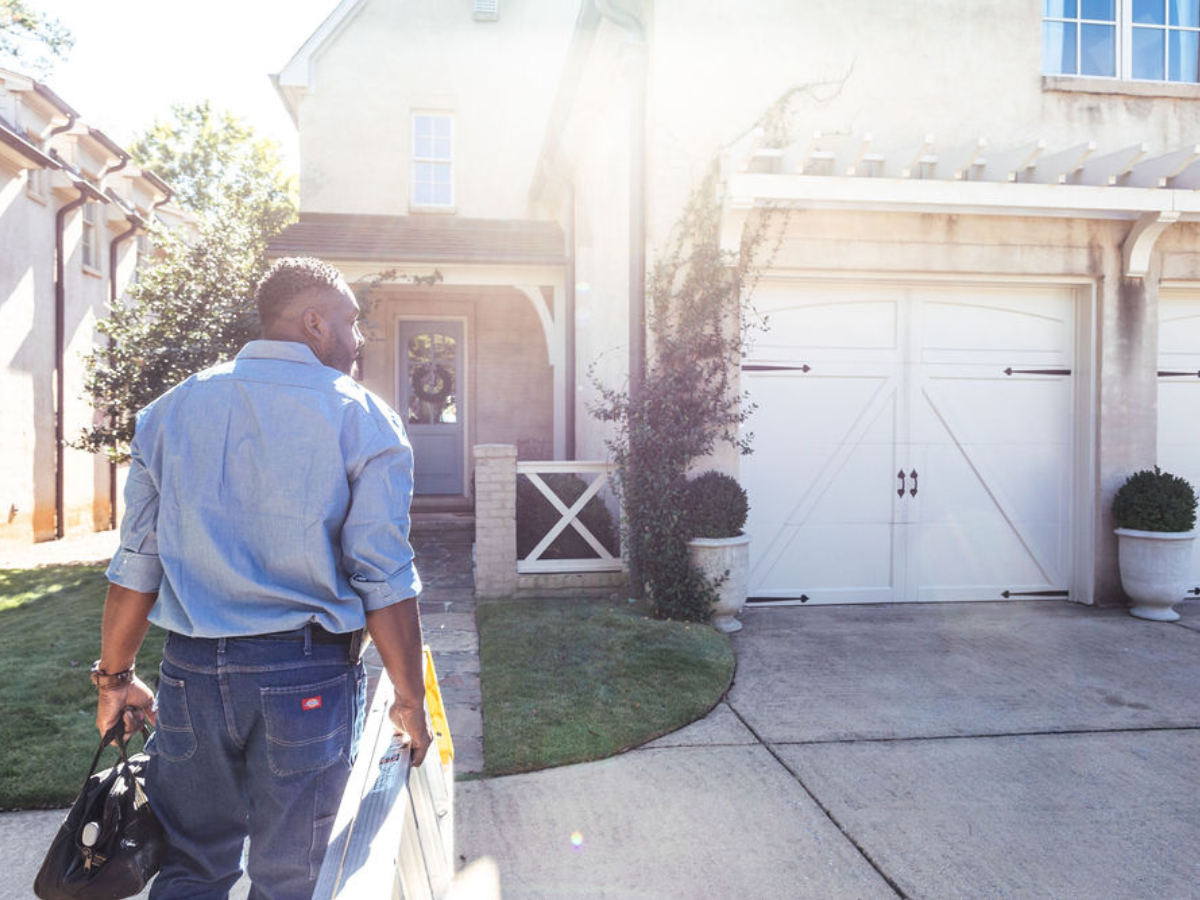Property owners in Atlanta often have a common fear—the risk of property damage due to delayed or inadequate maintenance. This fear is not unfounded, as property neglect can lead to severe consequences such as increased costs, property damage, safety hazards, depreciation of property value, and increased long-term expenses. This article will explore the importance of routine maintenance, strategies for effective maintenance management, and the technological tools available for efficient maintenance management.
Introduction
It's important for landlords to understand the significance of timely and effective maintenance in ensuring the integrity and value of their properties. Delayed or inadequate maintenance can have significant consequences. By addressing and prioritizing property maintenance concerns, landlords can mitigate potential property damage while minimizing costs and safeguarding their investment.
Section 1: The Consequences of Neglecting Property Maintenance
Immediate Impacts
One of the immediate impacts of neglecting property maintenance is increased costs. Small issues can quickly escalate when left unattended, leading to expensive repairs. Additionally, severe property damage can occur, compromising the safety and habitability of the property. Safety hazards, such as faulty wiring or structural deficiencies, can pose risks to tenants and may result in legal liabilities for the landlord.
Long-Term Effects
Neglecting property maintenance can also have long-term effects. Property value often depreciates when maintenance is neglected, making it difficult to attract potential buyers or secure higher rental income. Postponed maintenance can lead to increased long-term expenses, as minor issues can escalate and require extensive repairs. Regular maintenance not only helps preserve property value but also avoids costly repairs in the future.
Section 2: Importance of Routine Maintenance
Implementing a proactive approach to property maintenance can prevent significant damage and extend the lifespan of property components.
Preventive Measures
Routine maintenance covers various areas of a property, including roofing, HVAC systems, and plumbing. Timely repairs and replacements can prevent further damage and expensive repairs later on. Additionally, routine maintenance can significantly extend the lifespan of property components, ultimately saving landlords money in the long run.
Cost Benefits
Many landlords may consider routine maintenance to be an additional expense. However, when compared to the high costs of major repairs resulting from neglect, routine maintenance proves to be more cost-effective. By addressing issues early on, landlords can avoid the need for extensive repairs, minimize disruption to tenants, and protect the value of their property.
Section 3: Strategies for Effective Maintenance Management
Adopting effective maintenance management strategies can ensure that landlords stay on top of property maintenance tasks and avoid potential property damage due to neglected maintenance.
Regular Inspections
Scheduled inspections are crucial to identify any potential issues promptly. Regular inspections can help identify potential issues such as leaks, loose shingles, or malfunctioning equipment. Landlords should regularly check elements such as plumbing systems, electrical systems, HVAC units, and common areas.
Maintenance Checklist
Creating a comprehensive maintenance checklist tailored to your property's needs can help streamline your maintenance efforts. A checklist can include tasks such as gutter cleaning, filter replacements, landscaping maintenance, and seasonal inspections. By following a checklist, landlords can ensure that all critical areas of the property are regularly maintained, minimizing the risk of damage and maximizing the property's lifespan.
Section 4: Dealing with Unexpected Property Damage
Despite proactive maintenance measures, property damage can still occur, and landlords should respond swiftly and minimize further damage.
Immediate Response Plan
In the event of unexpected property damage, landlords should have an immediate response plan in place, which should include steps for assessing and containing the damage, such as shutting off water or electricity if necessary. By acting promptly, landlords can prevent further property damage and ensure the safety of their tenants.
Professional Assistance
In some instances, professional help is needed to address unexpected property damage. Establishing relationships with professionals in various fields—who can respond promptly—such as plumbers, electricians, and contractors, ensures that repairs are completed efficiently and to a high standard.
Section 5: Implementing a Maintenance Plan
Implementing a maintenance plan is crucial for landlords to maintain the value and integrity of their properties in the long term.
Setting Up a Maintenance Schedule
A well-designed maintenance schedule includes regular inspections, seasonal maintenance tasks, and ongoing repairs and replacements. By setting up a maintenance schedule, landlords can proactively address potential issues and maintain the functionality and appearance of their properties.
Communication with Residents
Engaging residents in the maintenance process is vital for the overall success of a maintenance plan. Landlords should effectively communicate with tenants, encouraging them to promptly report any maintenance issues or concerns. By fostering a sense of responsibility and ownership among residents, landlords can create a collaborative environment that ensures the timely resolution of maintenance problems.
Section 6: Technological Tools for Maintenance Management
Advancements in technology have transformed maintenance management, making it easier and more efficient for landlords to keep track of tasks and ensure timely repairs.
Maintenance Management Software
There are various maintenance management software options available to landlords. These software solutions help track maintenance tasks, schedule repairs, and document expenses. By using maintenance management software, landlords can streamline their maintenance processes, easily access historical data, and ensure the timely completion of tasks.
Benefits of Technology Integration
Integrating technology into maintenance management offers multiple benefits. It reduces manual errors, saves time, and improves efficiency. Furthermore, technology integration allows landlords to monitor maintenance progress remotely, ensuring that all tasks are completed on time, and nothing is overlooked.
Conclusion
To address the fear of property damage due to delayed or inadequate maintenance, Atlanta landlords must prioritize proactive maintenance and implement effective maintenance strategies. Routine maintenance not only prevents significant damage but also saves money in the long run. By implementing a maintenance plan, dealing with unexpected property damage, and leveraging technological tools, landlords can ensure the integrity and value of their properties while providing safe and well-maintained homes for their tenants.
And don’t worry. If the above seems like all too much, you can always outsource maintenance and repairs to a professional property management company. Reach out to our local team today!


